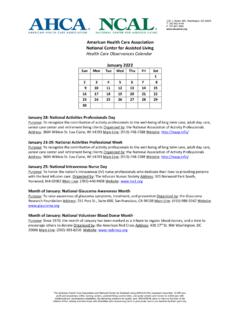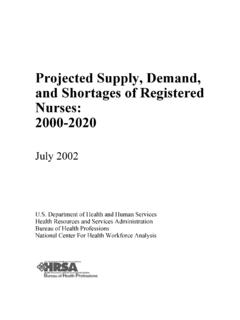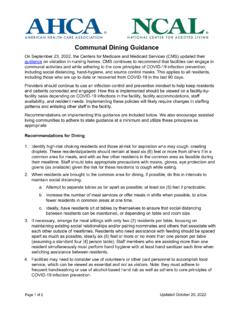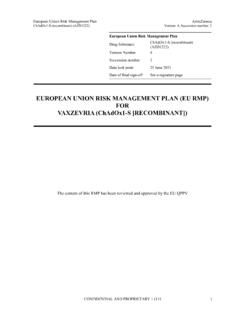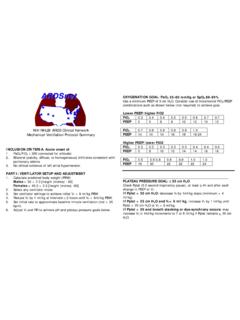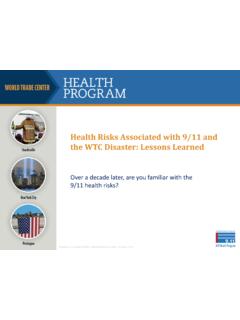Transcription of Nebulizer Treatment for COVID-19 Infected Residents with ...
1 Page 1 of 1 April 19, 2020 Nebulizer Treatment for COVID-19 Infected Residents with Severe respiratory Symptoms COVID-19 infections cause a range of symptoms but often impact the respiratory tract. These symptoms range from sore throat or cough to more severe pulmonary symptoms. More severe symptoms can include reactive airway disease with wheezing and shortness of breath or extreme respiratory compromise, sometimes due to acute respiratory distress syndrome (ARDS), that may require mechanical ventilation. The onset of the severe respiratory symptoms can occur at any time in the course of the disease and can often come on very quickly. This document deals with COVID-19 positive Residents with severe respiratory symptoms who need Nebulizer treatments.
2 CDC explains the risk: CDC considers Nebulizer treatments may be an aerosol generating procedure. While aerosols generated by nebulizers are derived from medication in the Nebulizer . It is uncertain whether potential associations between performing this common procedure and increased risk of infection might be due to aerosols generated by the procedure or due to increased contact between those administering the nebulized medication and Infected patients as CDC describes in the FAQs on their website. Facilities need to consider their specific situation, such as availability of personal protective equipment (PPE), staffing, the facility s physical environment, and the situation in the surrounding community, when deciding whether they can care for a resident who requires Nebulizer Treatment .
3 The decision to accept a Nebulizer dependent patient from the hospital, or whether to transfer a patient to the hospital should be based on the following: If nebulized medications are necessary for a resident with COVID-19 , the safest practice is for healthcare personnel (HCP) to wear an N-95 or higher-level respirator AND eye protection (along with the rest of CDC recommended PPE for Transmission-Based Precautions during COVID-19 ). o Facilities that do not have both N-95 respirators and face shields should not care for Residents with COVID-19 who need Nebulizer therapy. Such facilities should consider transferring these Residents to an acute care hospital and should not admit these patients. Limit the time HCP are in the room without compromising patient care during the Treatment to help limit any potential exposure.
4 Use a single room or cohort with other Residents who are COIVD-19 positive with symptoms per CDC guidance. Residents with respiratory symptoms can decompensate very quickly. A resident needing a Nebulizer or other airway assistance is likely a warning sign of the need for a higher level of care and may warrant transfer to the hospital or a delay in discharge from the hospital. For options about use of N-95 masks see options outlined in recent AHCA/NCAL guidance on N-95 options, which is based on CDC and OSHA guidance.
